 |
 |
Hard Chrome Plating Training Course
Appendix 4. Calculation of Surface Area and Volume
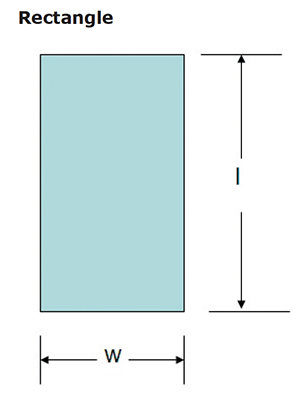 |
Formula:
Surface area = width (w) x length (l)
Example:
A flat surface to be plated is 1.5 feet wide by 2.0 feet long. What is the surface area of one side?
surface area = 1.5 feet x 2.0 feet = 3.0 ft3
Convert to square feet to square inches:
3.0 ft2 x 144 in/ft2 = 432 in3
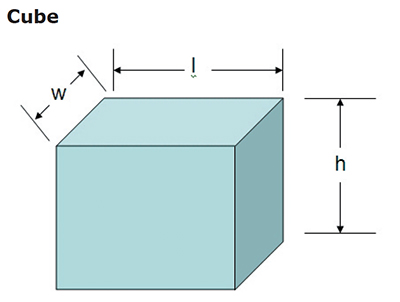 |
Formula:
Volume = width (w) x length (L) x height
Example:
A plating tank is 3.0 feet wide by 6.0 feet long by 4.5 feet deep. What is the volume of the tank in gallons?
volume = 3.0 ft x 6.0 ft x 4.5 ft = 81.0 ft3
Convert cubic (ft3) feet to gallons:
81.0 ft3 x (7.48 gal/ft3) = 605.9 gallons
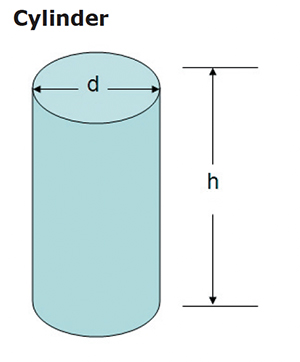 |
Surface area = π x diameter (d) x height (h) or 3.14 x d x h
Note that π always equals 3.14.
With this formula, we do not include the ends of the cylinder because they are normally not plated.
Example 1:
A piston is 30 inches long and has a diameter of 4 inches. What is the surface area of the piston?
surface area = (3.14) x (4 inches) x (30 inches)
surface area = 376.8 in2
Example 2:
An inside journal is 1.5 inches long and has a diameter of 4 inches. What is the surface area of the journal?
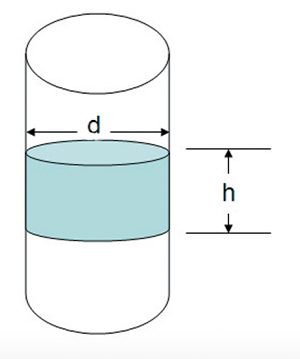 |
surface area = (3.14) x (1.5 inches) x (4 inches)
surface area = 18.8 in2
Volume of a Cylinder
Volume = π x (radius)2 x height
where radius (r) = d/2
Example: Volume of Partially Filled Drum
A 55 gallon drum with a diameter of 23 inches contains 14 inches of sulfuric acid. How many gallons of sulfuric acid are in the drum?
Volume = (3.14) x (23/2)2 inches x 14 inches Volume = 3.14 x 132.25 x 14
Volume = 5,813.7 in3
Convert to cubic feet:
5,813.7 in3 ÷ 1,728 in3/ft3 = 3.36 ft3
3.36 ft3 x 7.48 gal/ ft3 = 25.2 gal.
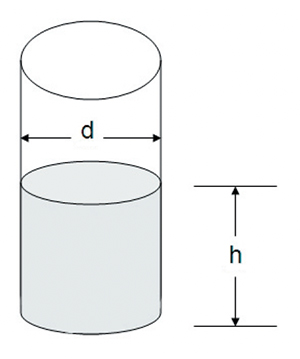 |
 |
 |
 |
The information contained in this site is provided for your review and convenience. It is not intended to provide legal advice with respect to any federal, state, or local regulation.
You should consult with legal counsel and appropriate authorities before interpreting any regulations or undertaking any specific course of action.
Please note that many of the regulatory discussions on STERC refer to federal regulations. In many cases, states or local governments have promulgated relevant rules and standards
that are different and/or more stringent than the federal regulations. Therefore, to assure full compliance, you should investigate and comply with all applicable federal, state and local regulations.